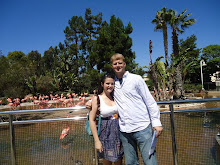
Markus Zusak's The Book Thief is one of the most powerful and touching books that I have read in a long time. First of all, it is not often, as readers or viewers, that we get to learn what it was like to live in and grow up in Nazi Germany. I, like many others out there, operate under the assumption that most, if not all, Germans from that time period are strictly bad people. The Book Thief has modified my point of view there.
Zusak's main character Liesel, is given to foster parents in the town of Molching outside Munich. Her stay on Himmel Street (Himmel= German for Heaven) is the meat and bones of the story and is narrated by none other than death. This narration provides readers with a unique prospective on the war and allows us to see what is happening across the world and outside of the Hubberman's house hold. While there, Liesel develops a beautiful relationship with her Papa, a cigarette smoking, house painting according player. She also learns the ways of the world through her miserable and book thieving experiences with her best friend Rudy. And, the most dynamic part of the story revolves around the Jew the Hubbermans hide in the basement, Max Vandenberg.
According to a starred review from School Library Journal, "Death is not a sentimental storyteller, but he does attend to an array of satisfying details, giving Liesel's story all the nuances of change, folly, and fulfilled expectation that it deserves. An extraordinary narrative."
The plot of this book focus on the the struggles of the poor people of Nazi Germany. It is gripping and sorrowful at the same time. Papa may not have been sent to a concentration camp because he offered bread to a Jew who was marching down Munich street. However, he was essentially drafted into military service and assigned to a crew of men who stayed above ground during the air raids. The plot, of course, is driven by the setting- Nazi Germany.
That setting provides Zusak with an opportunity to address a unique theme, much like a more adult book set in the same time and place, The Reader by Bernhard Schlink. (I had no idea that illiteracy was such a problem in Germany). Words are extremely powerful. When Liesel arrives at the Hubbermans, she can not read. She is taught how to read words by her father and then later how to use words by Max.
Utilizing this book in a classroom setting could be difficult. Students would need extensive background knowledge to understand the context of the story. Also, it would be an incredibly long whole class read.
However, I would utilize passages of this book if I were a social studies teacher. The Diary of Anne Frank covers the point of view of the Jewish people very well. This book covers the point of view of the poor German. Obviously, I would ask students about how they would react or hope to behave in each context. We can imagine that we would do more to protect the Jewish population than the Hubbermans did. However, if we sit and actually think about it, there was nothing more that Liesel could have done and ensured her own survival. Asking students to write from Liesel, Rudy, Hans or Max's point of view could cause some very serious reflective thinking too. After selecting and reading a scene with the students, reader's theater would generate more learning through experiences. Great scenes to reenact would be one of Liesel's thefts, a night by the fire with the Hubbermans and Max, or when Liesel tries to demonstrate that she can read to the teacher.
The Book Thief has won several awards. Some of those awards include School Library Journal's Best Book of the Year, Publisher's Weekly's Best Book of the Year. The Book Thief was also nominated for the Printz award.
Of all the books that I have read for my Children's Literature course, this book was the most thought provoking.
References:
Zusak, Markus. The Book Thief. Knopf Books for Young Readers, New York, 2006. ISBN: 978-0-375-84220-7




No comments:
Post a Comment